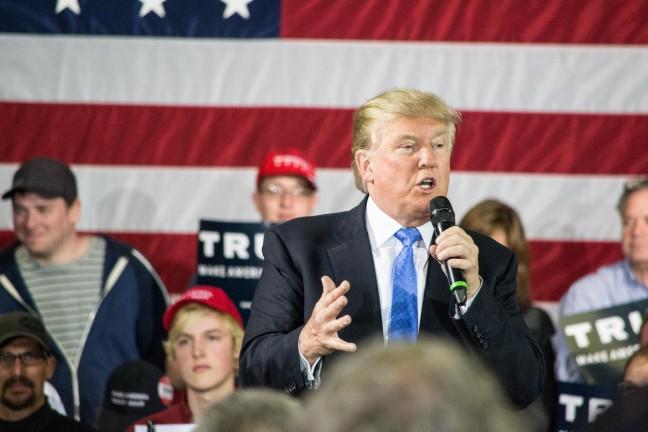One year after President Donald Trump was elected into office, students at the University of Wisconsin have continued their mission to create a unified campus, even amid growing tensions between partisans.
The night of Nov. 8, 2016, Donald Trump won the presidency by winning battleground states such as Wisconsin. In the following days and months, students reacted in various ways, from Republicans celebrating the win of their party to rallies such as the Women’s March.
Since then, the campus seems more divided among partisans, Young Americans for Freedom chair Abby Streu and Associated Students of Madison Equity and Inclusion chair, Alexandra Hader, said.
“I think that since the election there has definitely been more of a partisan divide, which is much like the one that we are seeing at the national level,” Hader said.
As far as ASM goes specifically, there hasn’t been a noticeable difference in how members act, but Hader has noticed that since the election, there are conversations being held and viewpoints being discussed that weren’t present before the election.
Streu concurred there’s a greater divide, but she said YAF had been experiencing tension even before the election. After the election, more students have come up to members at tabling events, such as the student organization fair, to berate them.
YAF has held controversial events such as Ben Shapiro last year and Katie Pavlich this year which have brought protesters, Streu said. Since the election, Streu has noticed more protestors, especially at the Ben Shapiro event that was only 10 days after the election.
“We try to project conservative ideas on campus rather than particular candidates because we think candidates can be flawed at times,” Streu said.
Previous to the election, YAF didn’t hold many activism events, but after the election, they felt as though it was essential, Streu said.
Campus leaders advocate for out-of-state student voting rights
There has also been rigidity between people within the same ideological standpoint regarding Trump, Streu said. For example, Shapiro has always been very anti-Trump, even though he spoke at a YAF event.
Even within the Republican party, there are many different ideologies which causes tension among the party, Streu said.
College Republicans spokesperson, Emelia Rohl, echoed similar instances of tension within the party.
While College Republicans is more involved with the Republican party, the executive board had multiple debates regarding the endorsement of Trump after he was chosen as the Republican nominee, Rohl said.
“I still personally feel like there’s a lot of animosity and hostility toward Republicans,” Rohl said. “I just still think there’s no tolerance.”
There was a lot of tension and divide on campus before the election and it has only increased since the election, Students for Justice in Palestine spokesperson, Liz Haberland-Ervin, said.
Haberland-Ervin has also noticed more “stress” between groups on campus, especially in response to legislation in Wisconsin, like the Campus Free Speech Act.
UW professor finds more than 16,000 Wisconsinites were deterred from voting
“Clubs like ours feel pressure that our voices might not be heard,” Haberland-Ervin said.
After the election, College Democrats were “devastated,” press secretary Claudia Koechell said, but they were proud of what they’d done for Hillary Clinton’s campaign.
Immediately after the election, many students reached out to College Democrats to not just get involved as members, but in leadership positions to do everything in their power to “stop Trump,” Koechell said.
“For most, they saw joining College Democrats as an opportunity to no longer feel powerless but rather feel empowered by the Democratic movement,” Koechell said.
Going forward, their main goal is to build upon their current membership and become motivated for the 2018 and 2020 elections, Koechell said.
Although the past year has been one of greater partisan polarization, each organization had the same theme of striving toward a better country.
“I believe this has caused people to be more mindful of everyone’s views, despite the polarizing issues that are often discussed or portrayed in the media,” Hader said.


















